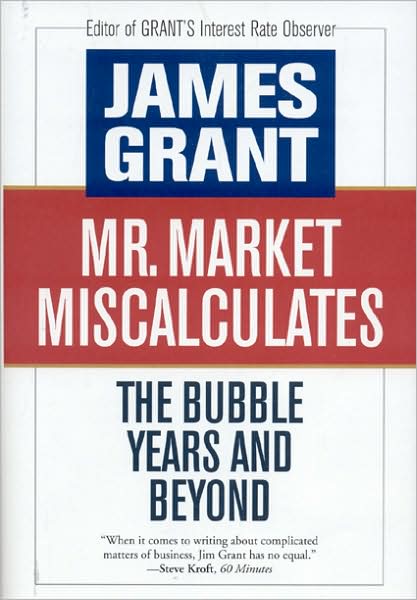Ten Points on Commercial Real Estate Lending
Before I begin this evening, I would like to give a big praise to Calculated Risk.? CR and his readers do a great job of highlighting stories in economics and real estate; I get a lot of data from that blog.? Some articles cited this evening have sprung from links on a CR post; my non-citing of CR is not a lack of respect for what CR does.
1)? We are at the beginning of seeing large commercial properties slide into default where equity sponsors have concluded that there is no use throwing good money after bad.? Recourse typically does not exist on commercial loans, aside from the smallest loans.
- Commercial real estate death watch
- S.F. tower’s owners will forfeit it to lender
- Lender takes Palo Alto’s Bordeaux Centre in auction
- Calpers Takes Another Property Hit
- Outbound Mail: USPS Targets Thousands of Branches for Closure
The last article is interesting to me, in that the ability of the US Postal Service to walk away from leases is greater than I previously thought.? It is also interesting to contemplate the economics of a collapsing postal service.? Will the postal service charge a differential rate to serve rural areas?? It would align revenues with costs, but politically I can’t imagine it is feasible given the US Senate.
2)? Of course, those defaults have large negative implications for large and small banks, as well as CMBS and Commercial REITs.
- A concrete problem (The Economist)
- Toxic Loans Topping 5% May Push 150 Banks to Point of No Return
- Most Failing Banks Are Doing It the Old-School Way
- Widening Commercial Real Estate Crisis Hits U.S. Banks
- Commercial Real Estate?s $1 Trillion Time Bomb
The difficulty for banks is different because they do not hold their Commercial Real Estate [CRE] loans at fair value.? So long as the loan is performing, it can be held at par.? The accounting does not require anticipating failure, no matter how likely on average that failure would be.
The banks have writeoffs to take which the CMBS market is already anticipating.? Absent a larger rally in CMBS, there will be significant writeoffs at the banks eventually.
For a broader look at the troubles the banks face, look at this article: Q2 2009 Bank Stress Test Results: The Zombie Dance Party Rocks On.
3)? When the price of properties are down 36% from the peak, it implies that most recent lending, 2006 and beyond, is under water, and 2005 is iffy.
4) $165 Billion in Commercial Loans are Due in ?09.? Banks will extend the loans, whereas CMBS special servicers will foreclose on some and extend others — the balance sheet of a CMB Securitization is not as flexible as that of a bank.
5) “What evil lurks in the heart of Commercial Real Estate loans?? The Shadow Supply knows.”? Whether it is condos in Manhattan, or apartments in the same, the problem of underemployed real estate weighs on the market, waiting for a moment to sell, and making the recovery that much longer.
6)? Goldman Sachs is the key component of the oligarchy that controls the US Government and sucks the blood of the American taxpayer for profit. ;)? Now they are planning to repeat their clever pillage of residential housing in the commercial sector.
Look, GS is clever, and they will make money they can.? I never supported any of the bailouts, but if the government sets the rules inadequately, and GS finds holes to profit off of, where does the blame go, but to the government who set loose rules.
7)? Goldman also sees hard times ahead for Commercial REITs, as I do.? Prices are too high relative to NAVs.? There will be significant loan defaults.? Shall I mention that Deutsche Bank agrees?
8) At such a time, as is normal, underwriting standards rise, and loan volumes decline.? It adds insult to injury, but banks have to protect their balance sheets.
9) This is also affecting pension plans, which are large investors in commercial real estate, both equity and mortgages.
10)? And looking at the architectural billings index, any turn in commercial real estate will not be soon.
I will be considerably more bullish when these problems are half solved.? Until then, I am still a bear on financials.


